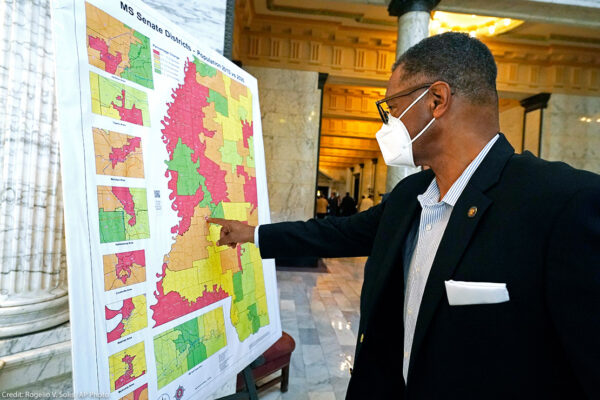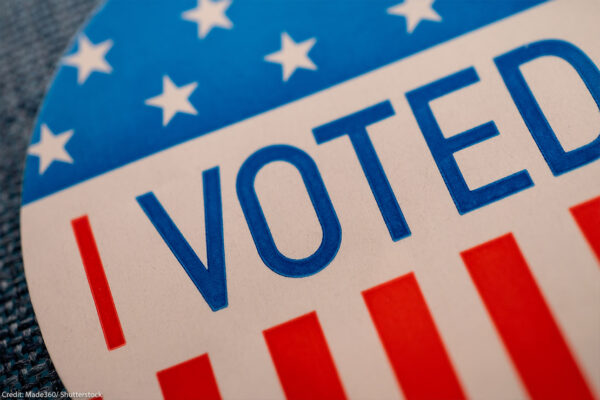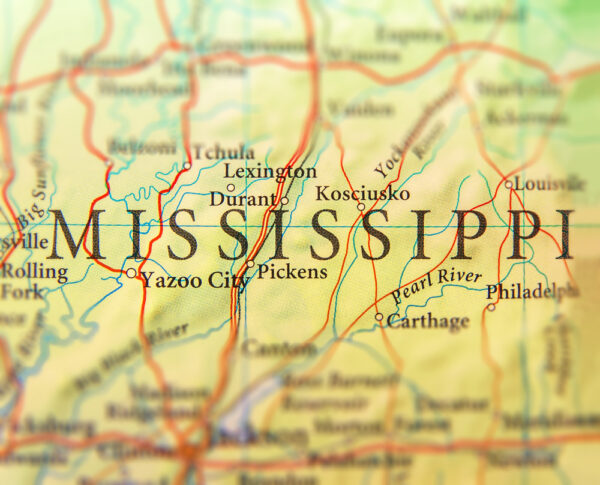Supreme Court Term 2025-2026
We’re breaking down the cases we've asked the court to consider this term.
Latest Case Updates
Ongoing
Updated November 7, 2025
Ongoing
Updated November 5, 2025
Ongoing
Updated November 4, 2025
Ongoing
Updated October 21, 2025
Featured
U.S. Supreme Court
Nov 2025

Voting Rights
Racial Justice
Allen v. Milligan
Whether Alabama’s congressional districts violate Section 2 of the Voting Rights Act because they discriminate against Black voters. We succeeded in winning a new map for 2024 elections which, for the first time, has two congressional district that provide Black voters a fair opportunity to elect candidates of their choosing despite multiple attempts by Alabama to stop us at the Supreme Court. Despite this win, Alabama is still defending its discriminatory map, and a trial was held in February 2025 to determine the map for the rest of the decade.
In May 2025, a federal court ruled that Alabama's 2023 congressional map both violates Section 2 of the Voting Rights Act and was enacted by the Alabama Legislature with racially discriminatory intent.
Washington, D.C.
Oct 2025

Voting Rights
League of Women Voters Education Fund v. Trump
On March 25, 2025, in a sweeping and unprecedented Executive Order, President Trump attempted to usurp the power to regulate federal elections from Congress and the States. Among other things, the Executive Order directs the Election Assistance Commission‚ÄĒan agency that Congress specifically established to be bipartisan and independent‚ÄĒto require voters to show a passport or other citizenship documentation in order to register to vote in federal elections. If implemented, the Executive Order would threaten the ability of millions of eligible Americans to register and vote and upend the administration of federal elections.
On behalf of leading voter registration organizations and advocacy organizations, the ļž–” ”∆Ķ and co-counsel filed a lawsuit to block the Executive Order as an unconstitutional power grab.
U.S. Supreme Court
Oct 2025

Voting Rights
State Board of Election Commissioners v. Mississippi State Conference of the NAACP
Mississippi has a growing Black population, which is already the largest Black population percentage of any state in the country. Yet. Black Mississippians continue to be significantly under-represented in the state legislature, as Mississippi’s latest districting maps fail to reflect the reality of the state’s changing demographics. During the 2022 redistricting process, the Mississippi legislature refused to create any new districts where Black voters have a chance to elect their preferred representative. The current district lines therefore dilute the voting power of Black Mississippians and continue to deprive them of political representation that is responsive to their needs and concerns, including severe disparities in education and healthcare.
U.S. Supreme Court
Oct 2025

Voting Rights
Louisiana v. Callais (Callais v. Landry)
Whether the congressional map Louisiana adopted to cure a Voting Rights Act violation in Robinson v. Ardoin is itself unlawful as a gerrymander.
Missouri
Sep 2025

Voting Rights
Wise v. Missouri
In unprecedented fashion, the State of Missouri has redrawn the district lines used for electing members of Congress for a second time this decade. These new district lines are gerrymandered and will harm political representation for all Missourians, particularly Black residents in Kansas City, who have been divided along racial lines.
Mississippi
Aug 2025

Voting Rights
White v. Mississippi State Board of Elections
District lines used to elect Mississippi’s Supreme Court have gone unchanged for more than 35 years. We’re suing because this dilutes the voting strength of Black residents in state Supreme Court elections, in violation of the Voting Rights Act and the U.S. Constitution.
Louisiana
Aug 2025

Voting Rights
Nairne v. Landry
Nairne v. Landry poses a challenge under Section 2 of the Voting Rights Act of 1965 to Louisiana’s House and Senate legislative maps on behalf of plaintiff Black voters and Black voters across the state.
Ohio
Jul 2025

Reproductive Freedom
Planned Parenthood Southwest Ohio Region et al., v. Ohio Department of Health, et al.
The ļž–” ”∆Ķ, the ļž–” ”∆Ķ of Ohio, Planned Parenthood Federation of America, the law firm WilmerHale, and Fanon Rucker of the Cochran Law Firm, on behalf of Planned Parenthood Southwest Ohio Region, Planned Parenthood of Greater Ohio, Preterm-Cleveland, Women‚Äôs Med Group Professional Corporation, Dr. Sharon Liner, and Julia Quinn, MSN, BSN, amended a complaint in an existing lawsuit against a ban on telehealth medication abortion services to bring new claims under the Ohio Reproductive Freedom Amendment, including additional challenges to other laws in Ohio that restrict access to medication abortion in the state.
U.S. Supreme Court
Apr 2024

Reproductive Freedom
Idaho and Moyle, et al. v. United States
Idaho and Moyle, et al. v. United States was appealed to the U.S. Supreme Court by Idaho politicians seeking to disregard a federal statute ‚ÄĒ the Emergency Medical Treatment and Labor Act (EMTALA) ‚ÄĒ and put doctors in jail for providing pregnant patients necessary emergency medical care. The Supreme Court heard oral arguments on this case on April 24, 2024. The Court‚Äôs ultimate decision will impact access to this essential care across the country.
All Cases
1,624 Court Cases

U.S. Supreme Court
May 2023
Capital Punishment
Reed v. Goertz
When a prisoner pursues state post-conviction DNA testing through the state-provided litigation process, when does the statute of limitations for a 42 U.S.C. § 1983 procedural due process claim begin to run?
Explore case
U.S. Supreme Court
May 2023

Capital Punishment
Reed v. Goertz
When a prisoner pursues state post-conviction DNA testing through the state-provided litigation process, when does the statute of limitations for a 42 U.S.C. § 1983 procedural due process claim begin to run?

Court Case
May 2023
Privacy & Technology
National Security
The Warrant Clause in the Digital Age
The information generated by today‚Äôs digital devices and online services reveals private matters far beyond what one could learn from physical analogs. In a series of legal filings and a white paper, available below, the ļž–” ”∆Ķ has argued that to keep apace with technological developments and adequately protect our privacy, the Fourth Amendment's warrant requirement must be interpreted robustly. Seizures and searches of digital data must be cabined to probable cause, limited to specific categories of information relevant to the investigation, and closely overseen by a neutral magistrate.
Explore case
Court Case
May 2023

Privacy & Technology
National Security
The Warrant Clause in the Digital Age
The information generated by today‚Äôs digital devices and online services reveals private matters far beyond what one could learn from physical analogs. In a series of legal filings and a white paper, available below, the ļž–” ”∆Ķ has argued that to keep apace with technological developments and adequately protect our privacy, the Fourth Amendment's warrant requirement must be interpreted robustly. Seizures and searches of digital data must be cabined to probable cause, limited to specific categories of information relevant to the investigation, and closely overseen by a neutral magistrate.

U.S. Supreme Court
May 2023
Free Speech
Gonzalez v. Trevino
This case is about what a plaintiff must demonstrate to sustain allegations that police arrested them in retaliation for First Amendment‚Äďprotected expression. While retaliatory arrest plaintiffs generally must show that police lacked probable cause to arrest them, the petitioner in this case correctly argues that a recognized exception to that rule, for cases where police typically exercise discretion not to arrest people, must be robust to protect the free speech of government critics.
Explore case
U.S. Supreme Court
May 2023

Free Speech
Gonzalez v. Trevino
This case is about what a plaintiff must demonstrate to sustain allegations that police arrested them in retaliation for First Amendment‚Äďprotected expression. While retaliatory arrest plaintiffs generally must show that police lacked probable cause to arrest them, the petitioner in this case correctly argues that a recognized exception to that rule, for cases where police typically exercise discretion not to arrest people, must be robust to protect the free speech of government critics.

Florida
Apr 2023
Reproductive Freedom
Planned Parenthood of Southwest and Central Florida, et al. v. State of Florida, et al.
On January 23, 2023, the Florida Supreme Court accepted a request by abortion providers to hear arguments in their case against House Bill 5 (HB 5), a ban on abortion after 15 weeks of pregnancy that threatens to put doctors in jail for providing essential care beyond that point. The move comes after several court rulings closed off meaningful legal avenues to block the law. While providers’ request for the court to hear arguments in the case was granted, the justices declined to immediately block HB 5 while the lawsuit proceeds, leaving the ban in place for now.
Explore case
Florida
Apr 2023

Reproductive Freedom
Planned Parenthood of Southwest and Central Florida, et al. v. State of Florida, et al.
On January 23, 2023, the Florida Supreme Court accepted a request by abortion providers to hear arguments in their case against House Bill 5 (HB 5), a ban on abortion after 15 weeks of pregnancy that threatens to put doctors in jail for providing essential care beyond that point. The move comes after several court rulings closed off meaningful legal avenues to block the law. While providers’ request for the court to hear arguments in the case was granted, the justices declined to immediately block HB 5 while the lawsuit proceeds, leaving the ban in place for now.

Arizona
Apr 2023
Reproductive Freedom
Paul A. Isaacson, M.D., et al. v. Mark Brnovich, et al.
Two Arizona physicians, the Arizona Medical Association, Arizona National Council of Jewish Women, and the Arizona National Organization of Women are challenging two abortion restrictions passed in Arizona in April 2021. One, the ‚Äúreason‚ÄĚ ban, is a ban on‚ÄĮabortions‚ÄĮbased on a patient‚Äôs reason for seeking‚ÄĮone, including‚ÄĮwhen the abortion could be deemed due to a fetal condition or diagnosis.‚ÄĮThis ban targets pregnant people already facing complex considerations regarding fetal genetic conditions and drives a wedge between a patient and their provider.
Explore case
Arizona
Apr 2023

Reproductive Freedom
Paul A. Isaacson, M.D., et al. v. Mark Brnovich, et al.
Two Arizona physicians, the Arizona Medical Association, Arizona National Council of Jewish Women, and the Arizona National Organization of Women are challenging two abortion restrictions passed in Arizona in April 2021. One, the ‚Äúreason‚ÄĚ ban, is a ban on‚ÄĮabortions‚ÄĮbased on a patient‚Äôs reason for seeking‚ÄĮone, including‚ÄĮwhen the abortion could be deemed due to a fetal condition or diagnosis.‚ÄĮThis ban targets pregnant people already facing complex considerations regarding fetal genetic conditions and drives a wedge between a patient and their provider.
